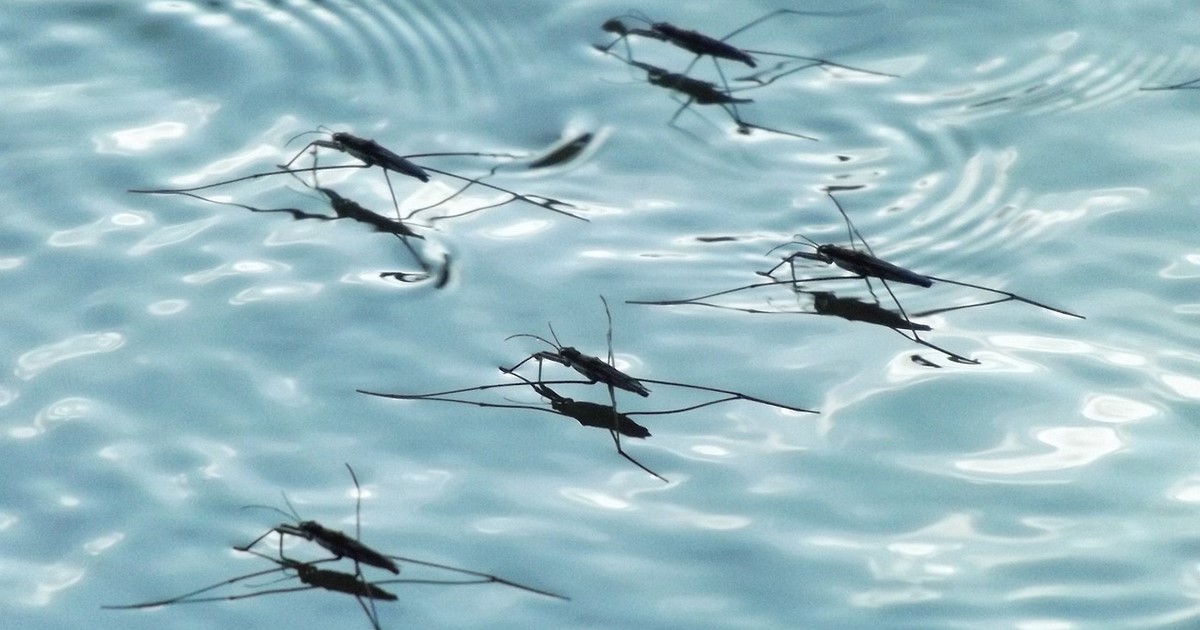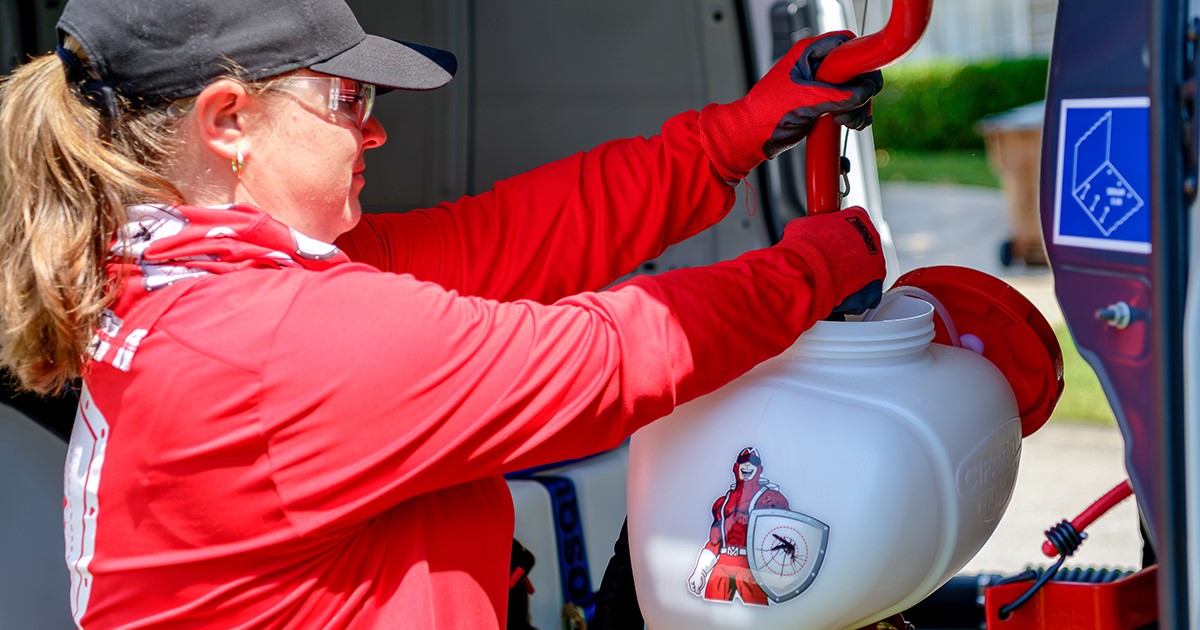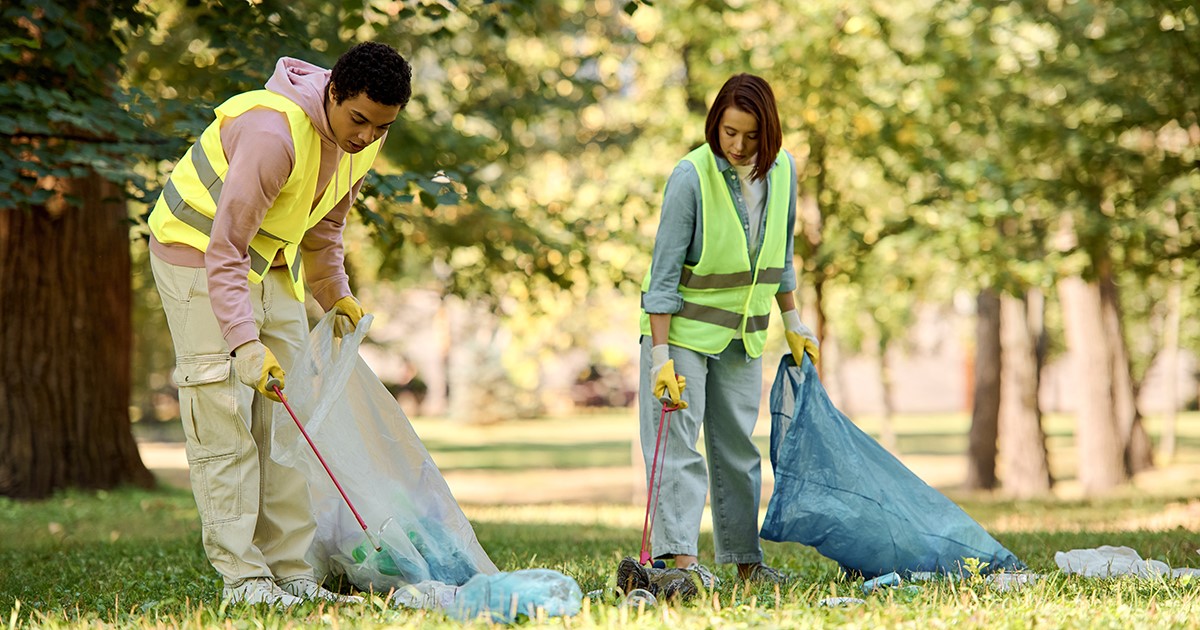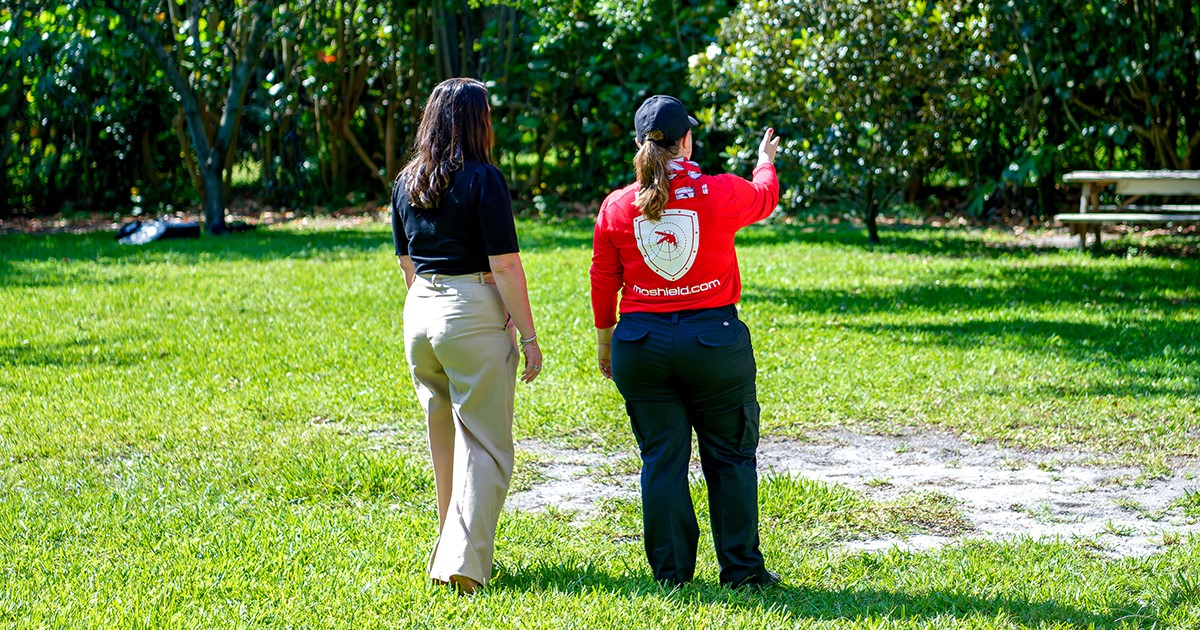For immediate help with expert mosquito control services, call Mosquito Shield at (800) 908-7076. Our local mosquito control experts are ready to provide the best solutions for a comfortable outdoor environment. Don’t let mosquitoes ruin your day! Click here to connect with the Mosquito Shield experts near you.
Master the Outdoors: Essential Tips to Outsmart Mosquitoes
Warm weather means more mosquitoes, which can cause itchy bites and diseases such as Zika, West Nile virus, and malaria.
If you’re looking forward to summer activities like backyard barbecues, patio evenings, or camping trips, you must protect yourself from these annoying pests to fully enjoy them. It would help if you had The Mosquito Season Survival Guide.
Here are some knowledge and tips to survive and thrive during mosquito season, keeping you and your loved ones comfortable outdoors.

Staying shielded from mosquitoes is crucial for you to enjoy your summer fully.
Understand Mosquito Season
Climatic conditions influence mosquito activity, and their active season can vary significantly depending on your geographic location. Understanding the patterns can help you prepare and respond effectively:
Temperature Thresholds
- Mosquito season typically begins when nighttime temperatures consistently exceed 60 degrees Fahrenheit.
- Although mosquitoes are cold-blooded, they rely on warm temperatures for their life processes, including breeding.
Regional Variations
- In northern regions, mosquito activity may start in late spring and end by early fall.
- Mosquitoes might be active year-round in southern areas due to milder winters and longer warm periods.
- Coastal regions often experience earlier starts to the mosquito season because of higher humidity levels and warmer winter temperatures.
Weather Influences
- Rainfall: Heavy rains can lead to standing water, which provides perfect breeding sites for mosquitoes. Conversely, a dry season might temporarily reduce their numbers, but even small amounts of water can support larvae.
- Humidity: Humidity helps mosquitoes thrive by keeping their bodies moist and supporting the water ecosystems where they breed.
- Temperature Fluctuations: Sudden temperature changes can either spur or hinder mosquito activity. Warm spells during the spring often lead to a surge in mosquito populations.
Monitoring and Prediction
- Pay attention to local weather forecasts and alerts about mosquito activity in your area.
- Some regions may have mosquito forecasting tools and resources from public health departments or local universities.
Preparation Based on Seasonal Trends
- Early Season: Begin mosquito prevention measures early in the season, such as eliminating standing water and setting up barriers.
- Peak Season: Increase vigilance in personal protection and yard maintenance to keep mosquito populations under control.
- End of Season: Continue measures until temperatures consistently drop below the activity threshold to avoid late-season mosquito breeding.
By understanding these seasonal dynamics, you can implement timely strategies to reduce mosquitoes’ impact on outdoor activities and health.

Begin mosquito prevention measures early in the season, such as eliminating standing water and setting up barriers.
Preventative Measures
The Mosquito Season Survival Guide suggests prevention is your best strategy against mosquitoes. Implementing these proactive steps can significantly reduce the likelihood of mosquito issues:
Eliminate Standing Water
- Regular Inspections: Conduct weekly checks around your property for any water accumulation.
- Areas to Monitor: Pay special attention to birdbaths, plant saucers, buckets, old tires, and gutters. These items are often overlooked yet are common breeding sites.
- Maintenance Tips: Clean and change the water in birdbaths and pet water dishes every few days. Ensure gutters are not clogged and are draining properly.
Landscaping
- Grass and Vegetation: Keep your lawn mowed and vegetation trimmed. Tall grass and dense shrubs provide shelter from the sun for mosquitoes.
- Mulch and Leaves: Remove any piled-up leaves or mulch that can trap moisture, as these can also provide hiding spots for mosquitoes.
- Plant Choices: Incorporate plants that naturally repel mosquitoes, such as citronella, lavender, and marigold, into your garden.
Protective Gear
- Clothing: When outside, especially in areas near woods or water, wear long sleeves, long pants, and hats. Tuck your shirt into your pants and your pants into your socks to protect as much skin as possible.
- Colors: Opt for light-colored garments. Mosquitoes are more attracted to dark colors, so wearing light hues can make you less appealing to them.
- Insect Repellent Clothing: Consider using clothing treated with permethrin, an insect repellent that can be applied to clothing and effectively keeps mosquitoes away.
Use of Physical Barriers
- Window Screens: Ensure all windows and doors have tight-fitting screens without holes or gaps.
- Netting: Use mosquito nets over areas where you spend time relaxing outdoors, such as patio umbrellas or dining areas, and over beds if you sleep outside or in a mosquito-prone area.
Consistently using these measures can significantly lower the number of mosquitoes around your home and reduce your risk of getting bitten.

Selecting an effective mosquito repellent is a crucial part of your defense strategy.
Choosing the Right Repellents
Selecting an effective mosquito repellent is a crucial part of your defense strategy. Here are detailed options and guidelines to consider:
Manufactured Repellents
- Key Ingredients: Look for products containing DEET, picaridin, or IR3535. These ingredients have been proven effective at repelling mosquitoes.
- Concentration Levels: The concentration of active ingredients varies. Products with 30-50% DEET will provide long-lasting protection and are suitable for areas with high mosquito activity.
- Application Tips: Apply repellents to exposed skin and clothing, avoiding eyes and mouth. Follow the label instructions for reapplication times to maintain effectiveness.
Natural Repellents
- Oil of Lemon Eucalyptus (OLE): The CDC recognizes this plant-based option as an effective mosquito repellent. However, OLE should not be used on children under three years old.
- Citronella: Products such as candles or oils can be effective in small outdoor areas. Reapply or relight as needed since their effectiveness can diminish in larger open spaces.
- Other Natural Oils: Use geraniol, peppermint, or catnip oil repellents. These are less studied than OLE but offer a natural alternative.
Considerations for Children and Pets
- Children: Choose repellents specifically for children and use them sparingly. To reduce the risk of eye contact or ingestion, avoid applying repellent to children’s hands.
- Pets: Never use human mosquito repellent on pets. Check with your veterinarian for pet-safe products and consider mosquito-repellent gear for dogs, such as vests or bandanas treated with permethrin.
- Sensitive Skin: If any repellent causes skin irritation, wash the affected area with soap and water and try a different product or a lower concentration.
Special Considerations
- Pregnant and Nursing Women: DEET, picaridin, and IR3535 are safe for pregnant and nursing women when used according to the product instructions.
- Allergies and Reactions: If you have sensitive skin or allergies, always test repellents on a small skin area first to ensure no adverse reaction occurs.
By choosing the right mosquito repellent and using it correctly, you can significantly reduce your risk of mosquito bites and associated diseases.
Innovative Home Solutions
Beyond using repellents, The Mosquito Season Survival Guide suggests several home modifications you can implement to reduce mosquito encounters effectively:
Screens and Nets
- Installation and Maintenance: Ensure all windows and doors have high-quality screens. Regularly inspect these screens for tears or holes and repair them promptly to maintain an effective barrier against mosquitoes.
- Sleeping Arrangements: Use mosquito nets over beds in mosquito-prone areas, ensuring they are adequately sealed on all sides. This is especially important in tropical or subtropical regions.
Mosquito Traps and Lights
- Types of Traps: Employ mosquito traps that use attractants such as UV light, heat, or carbon dioxide to lure mosquitoes. These devices can be strategically placed around the perimeter of your home or in the garden.
- Placement: Place traps away from common areas to draw mosquitoes from where people gather. Ensure traps are cleaned and maintained regularly for maximum effectiveness.
Natural Deterrents
- Repellent Plants: Plant a garden with mosquito-repelling plants such as marigolds, basil, and lavender. These plants naturally emit fragrances that mosquitoes find unattractive.
- Placement: To maximize effectiveness, position these plants around patios, walkways, and near windows and doorways.
- Additional Benefits: Besides repelling mosquitoes, these plants can enhance the aesthetic of your home and provide herbs for your kitchen.
Water Management
- Water Features: If you have water features like ponds or fountains, introduce natural predators such as fish that feed on mosquito larvae. Consider installing aeration devices to keep water moving and prevent mosquito breeding.
- Rainwater Harvesting: Ensure rain barrels are covered with mosquito-proof netting to prevent them from becoming breeding sites.
Integrated Pest Management
- Regular Cleaning: Keep your yard and gutters clean to avoid water accumulation where mosquitoes can breed.
By integrating these innovative solutions into your home environment, you can create multiple layers of defense that reduce mosquito encounters and enhance your enjoyment of outdoor spaces.

When entire neighborhoods work together, they can significantly reduce mosquito populations.
Community Initiatives
According to the Mosquito Season Survival Guide, effective mosquito control often requires community effort. When entire neighborhoods work together, they can significantly reduce mosquito populations and minimize the risk of mosquito-borne diseases. Here are some key initiatives that can help:
Community Spraying
- Scheduled Treatments: Coordinate with local health departments or pest control services to arrange regular mosquito control treatments in public areas, such as parks, playgrounds, and community centers.
- Notification System: Establish a system to notify residents about spraying schedules and safety precautions, ensuring everyone is informed and can take necessary measures, like closing windows or avoiding certain areas during spraying.
Education
- Public Workshops and Seminars: Organize educational events to inform community members about effective mosquito control practices. These can include workshops on eliminating standing water, mosquito repellents’ benefits, and personal protection’s importance.
- Distribute Materials: Provide brochures, flyers, or digital content that outlines steps homeowners can take to reduce mosquito habitats on their property.
Community Cleanup Days
- Organize Regular Cleanups: Establish regular community cleanup days to clear debris from shared spaces and private properties, focusing on removing items that can hold water.
- Target Key Areas: To prevent water accumulation, focus efforts on emptying containers, cleaning gutters, and maintaining public drainage systems.
Water Management Programs
- Inspections and Maintenance: Implement community-wide programs to inspect and maintain proper drainage in public areas to prevent standing water, a prime breeding ground for mosquitoes.
- Rainwater Harvesting Guidelines: Develop and promote guidelines for safely using rain barrels and other water collection systems, ensuring they are covered or treated to prevent mosquito breeding.
Neighborhood Watch for Mosquito Control
- Encourage Reporting: Set up a system where residents can report areas of concern, like large puddles or neglected pools, to community officials or a designated mosquito control team.
- Rapid Response Teams: Have a team ready to respond to these reports by promptly assessing and mitigating mosquito breeding risks.
By engaging in these community initiatives, neighborhoods can create a more enjoyable environment for all residents. Collaborative efforts amplify the impact of individual actions and foster a sense of community and shared responsibility.

Introduction to Mosquito Shield’s Expert Services
The Mosquito Season Survival Guide recommends Mosquito Shield to significantly reduce mosquito populations on your premises. Our methods ensure that your outdoor areas are comfortable so that you can enjoy them fully.
Comprehensive Mosquito Control Strategy
- Elimination of Mosquitoes: Our technicians deploy a wax-based, water-repellent barrier that adheres to various surfaces, effectively reducing mosquito populations.
- CO2 Masking: The treatments alter your property’s carbon dioxide signature, making it less attractive to mosquitoes, which rely on CO2 to find hosts.
- Strengthening Repellent Barriers: Each visit fortifies the repellent barrier applied to foliage and structures with every application.
Targeted Application Areas
- Focus on High-Use Areas: Specific attention is given to pools, decks, patios, and swing sets—places where your family gathers and enjoys the outdoors.
- Strategic Treatment of Activity Points: We concentrate on areas known for mosquito activity to maximize control effectiveness.
Proactive and Responsive Approach
- Timed Spraying Technology & Automated Systems: Using automated technology, Mosquito Shield can consistently apply treatments at the optimal time, enhancing the effectiveness of each application and ensuring consistent coverage throughout the mosquito season.
Quick Results and Extended Coverage
- Fast and Effective: Notice rapid improvements in mosquito activity, allowing you to enjoy your outdoor space again swiftly.
- Comprehensive Solutions: Our services cater to residential and commercial needs, ensuring everyone can benefit from a comfortable environment.
Get Started with Mosquito Shield
Contact Mosquito Shield to initiate your journey to an enjoyable outdoor experience today. Discover more about our targeted solutions for homes and businesses, and start enjoying your outdoor spaces without the bother of mosquitoes.
Embrace Summer with Confidence
By staying informed and proactive with this Mosquito Season Survival Guide, you can enjoy the warmer months without the annoyance of mosquitoes. The key to a successful mosquito season is undoubtedly preparation and prevention. With these strategies, you and your family can relish the joys of the great outdoors. Here are some final thoughts to keep in mind as you implement these measures:
- Consistency is Crucial: Regularly apply the preventive measures discussed, such as eliminating standing water and using the proper repellents. Mosquito control is an ongoing task throughout their active months.
- Stay Updated: Keep abreast of local mosquito activity and community efforts to tackle outbreaks. Participating in or initiating community programs can enhance the effectiveness of your actions.
- Educate and Share: Share your knowledge and experiences with friends, family, and neighbors. Educating others helps them to shield themselves and contributes to broader community health.
- Be Adaptable: As seasons change or new information about mosquito control techniques or products are available, be ready to adapt your strategies. What works one year might need tweaking the next.
By embracing these practices, you ensure a mosquito-reduced environment and increase the likelihood of a healthier lifestyle for everyone around you. Let this information empower you to take control of your outdoor experiences, making every summer more enjoyable.
For immediate help with expert mosquito control services, call Mosquito Shield at (800) 908-7076. Our local mosquito control experts are ready to provide you with the best solutions for a comfortable environment. Find relief from mosquitoes now! Contact your local Mosquito Shield today—just a click away.
FAQ
When does mosquito season typically start?
Mosquito season generally begins when nighttime temperatures consistently rise above 60 degrees Fahrenheit. The exact timing can vary based on regional climate conditions.
How do weather conditions affect mosquito activity?
Mosquitoes thrive in warm, humid conditions and require standing water to breed. Heavy rains can create breeding grounds, while a dry season may temporarily reduce their numbers.
What are some effective preventative measures I can take to reduce mosquito presence?
Eliminating standing water, maintaining your yard, and using physical barriers like window screens and mosquito nets are crucial. Additionally, planting mosquito-repelling plants can help.
What should I wear to prevent mosquitoes from landing on me?
Wear long sleeves and pants, preferably light colors, as mosquitoes are attracted to dark shades. Clothing treated with permethrin can also offer additional assitance.
What are the best mosquito repellents?
Look for repellents containing DEET, picaridin, or IR3535. These ingredients are proven to be effective against mosquitoes. Natural options like lemon eucalyptus oil can also be effective, but they are not recommended for children under three.
How can I keep mosquitoes away from my outdoor living areas?
Utilize mosquito nets over gathering areas and consider using mosquito traps. Ensuring all screens on windows and doors are intact and without holes can also keep mosquitoes out of your home.
How can I safely use mosquito repellent on children and pets?
Use repellents that are specifically labeled safe for children and apply them sparingly. Avoid using human repellents on pets and consult a veterinarian for appropriate pet-safe options.
What community efforts can help control mosquitoes?
Participating in community spraying programs, organizing local cleanups to eliminate breeding sites, and educating neighbors about mosquito prevention can all contribute to effective mosquito control.
Why should I consider professional mosquito control services?
Professional services provide targeted, effective treatment that addresses all life stages of mosquitoes with advanced technology and expertise, offering a higher level of defense than DIY methods.
What are some signs that I need to intensify my mosquito control efforts?
An increase in mosquito bites, visible swarms, or standing water on your property clearly indicates that you need to enhance your mosquito management strategies.




